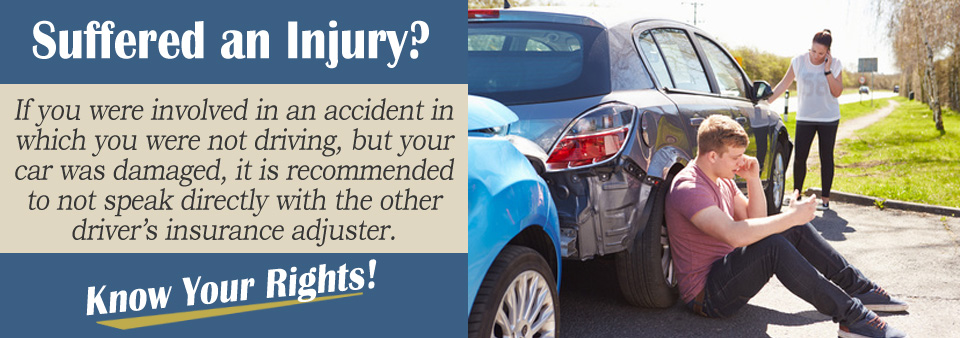Traffic accidents are more common than any other kind of accident. You might think that you are a safe driver, but it’s sometimes hard to avoid an accident if you encounter someone who is tailgating you, drunk, speeding, using their cell phone rather than concentrating or who fails to observe traffic rules.
But what happens when you are in your own car as a passenger when you are hit by another driver? Can you still claim for compensation? What do you say to either your own insurance company or the other driver’s insurance company? Here are some tips to help deal with this sort of scenario.
Tip#1: Make Sure That Anyone Who Drives Your Car Is Insured and Licensed
It may be too late to think about it now, but this advice is only commonsense. You are unlikely to be successful blaming another driver for injuries and damage to your car and then negotiating a personal injury claim with their insurer if you allowed an uninsured or unlicensed driver to drive your car at the time of an accident.
Tip#2: Do Not Communicate Directly With the other Driver’s Insurance Adjuster
It is a common strategy on the part of a defendant’s insurance adjuster to act in a friendly and seemingly sympathetic manner only to tempt you into revealing information which can later act against you.
Even if the driver of your car was insured and licensed the fact that you were not driving your own car could potentially be used to minimize compensation in the event that you file a personal injury claim. Leave any negotiating with an opposing insurance adjuster to your own attorney.
Tip#3: Stick to the Facts
If you are compelled to give an account of what happened leading up to an accident, stick to what you know. Concentrate on telling the truth without speculating on the motive of the other driver or making things up which cannot be proved.

Tip#4: Obtain Evidence of What Happened
If you do decide to make a claim, it is far more important that you have evidence which supports the fact that you were the victim of the accident and that the other driver was at fault.
Things that you can do to help your case are photos taken at the scene of the accident, witness reports or statements (these can be recorded using the voice recorder app on your cell phone) backed up by contact details of anyone prepared to vouch for your side of the story.
If the police were involved, it is important that you obtain a copy of the report they file after they have investigated the accident scene.
Tip#5: Talk To a Personal Injury Attorney As Soon As You Can
Insurance companies, especially those that represent someone who has been accused of causing an accident, are not known for their generosity. Their aim is to minimize payments and they will often do all they can to accomplish this.
Insurance adjusters are very experienced when it comes to assessing claims and negotiating in favor of their clients. The only way to counter this is to use an experienced personal injury attorney to represent your interests and fight for compensation which you both need and deserve.